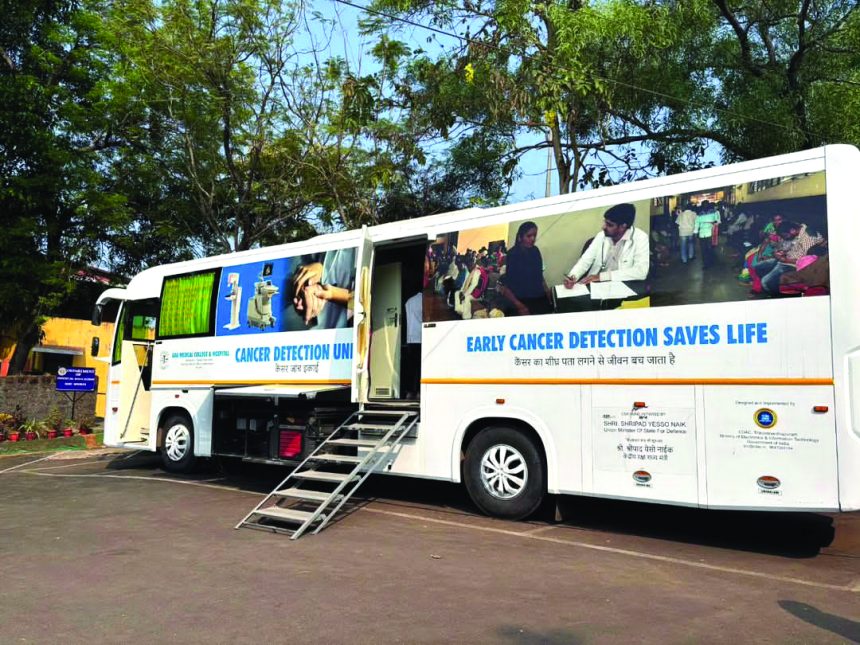NT Reporter | Panaji
Eighty-four people have been detected with pre-cancerous conditions through a special mobile cancer screening initiative launched by the Goa Medical College (GMC). These early detections helped prevent the progression of the disease in these persons, offering new hope in the state’s healthcare.
“All 84 were treated in time. Eighteen more
patients were diagnosed with cancer at an early stage, treated free of cost, and are all alive today,” said Dr Jagdish Kakodkar,
Professor and Head of the Department of Preventive and Social Medicine of GMC.
The project operates through a state-of-the-art mobile cancer screening and detection bus, which brings free cancer testing and awareness directly to communities across the state. “It can detect up to eight different types of cancer,” Kakodkar said. “We have advanced machines for blood tests, haematology, biochemistry, and tumour marker testing. Samples are sent to GMC, and reports reach patients through their local health centres.”
The bus is connected with PHCs and UHTCs, ensuring that test results and follow-ups are efficiently delivered.
Inside the bus, patients can avail of a wide range of facilities, including digital mammography, ultrasound for early breast cancer detection in younger women, and digital X-rays for identifying oral, head, neck, and lung cancers. For women, the van also offers gynaecological screening and Pap smear testing, with samples processed at GMC’s pathology department.
“All these services are completely free,” Kakodkar said. “So far, we have screened more than 4,500 people and detected 18 confirmed cancers—all treated free of cost,” he said.
He said that the current campaign follows a two-stage detection system.
“True screening involves checking completely healthy individuals, which is challenging. So, we focus on early detection by identifying people who show warning symptoms and signs, creating awareness in the community,” Kakodkar said.
Citizens showing symptoms can visit any health centre, district hospital, or GMC, where they are referred to the appropriate department — surgery, gynaecology, dental, respiratory medicine, or oncology — depending on the case.




